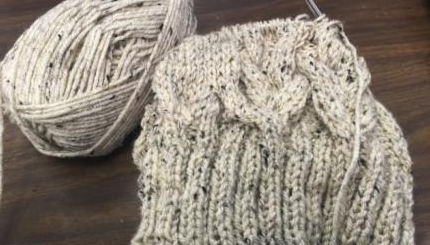The only Jewish person I knew of growing up was Jesus, and to be honest I had never thought much about this aspect of his identity until college when a professor described Jesus as a rabbi during a lecture.
I had developed an affinity for Jewish culture as a teenager, much the same way a teenager develops a curious interest in anything their parents haven’t told them much about. When I told my mother of my newfound interest, she bought me a small menorah, sent me a Rosh Hashanah e-card at the appropriate time of year, and told me that it was at least moderately likely that my grandmother’s German ancestors had been Jewish, but left that part of their culture behind when moving to the wild, lawless trapper’s country of South Louisiana.
(It seems that my ancestry is diverse enough to accommodate any passing cultural fancy I’ve had growing up. When I went abroad for a semester in Northern Ireland, my grandfather informed me that his grandfather had been Irish. I found it odd that this had never been mentioned before I brought up the subject.)
The point of these perhaps too-indulgent anecdotes is that any knowledge I’ve had of Jewish culture prior to interning here at the Institute for Southern Jewish Life has been superficial at best. The menorah my mother gave me is tucked away, forgotten in a drawer somewhere (and it uses candles that look suspiciously similar to those found on birthday cakes). I was nineteen years old before I really met and had a conversation with a Jewish person, at least to my knowledge.
At last week’s staff meeting, my first at the ISJL, we had a program on inclusion in honor of MLK Day. It was discussed that the ISJL is in the unique position of being the first Jewish organization that many people in the area will come in contact with. It certainly has been that for me. I couldn’t be more grateful to everyone for how welcoming they’ve been and am so appreciative of everyone’s willingness to explain any term or aspect of Jewish culture that I don’t understand.
My uncle has always said of New Orleans, a place he lived for 11 years, that you “never stop peeling back the onion.” My past week at the institute has taught me the same of the South in general. I’ve lived in the South my entire life and have yet to be involved, or even be in conversation with, the Jewish community here. A community that thrives, perhaps shamefully forgotten by those not a part of it, right in our midst.
I could not be more grateful for the opportunity to peel back and better understand this particular layer of my home.
Moved by this post? Join the conversation through MyJewishLearning’s weekly blogs newsletter.
menorah
Pronounced: muh-NOHR-uh, Origin: Hebrew, a lamp or candelabra, often used to refer to the Hanukkah menorah, or Hanukkiah.


